Three things a Valley trio learned opening a coffee shop far from home
Before they wanted to quit 5,000 times, a trio of Spokane Valley residents set out to open a coffee shop in Costa Rica. Since that moment nearly three years ago, a combination of perseverance and “pura vida” resulted in the popular San Ramon destination, Elements Coffee House.
It’s a decision that has impacted thousands of lives for good: The team of eight local employees they treat like family; the community of Ticos (Costa Ricans) who pack the venue for their most important celebrations; the Gringos (expats) who have found “a perfect combination of the comforts of home with the taste of Costa Rica,” as one five-star reviewer put it.

The layout of Elements Coffee House … 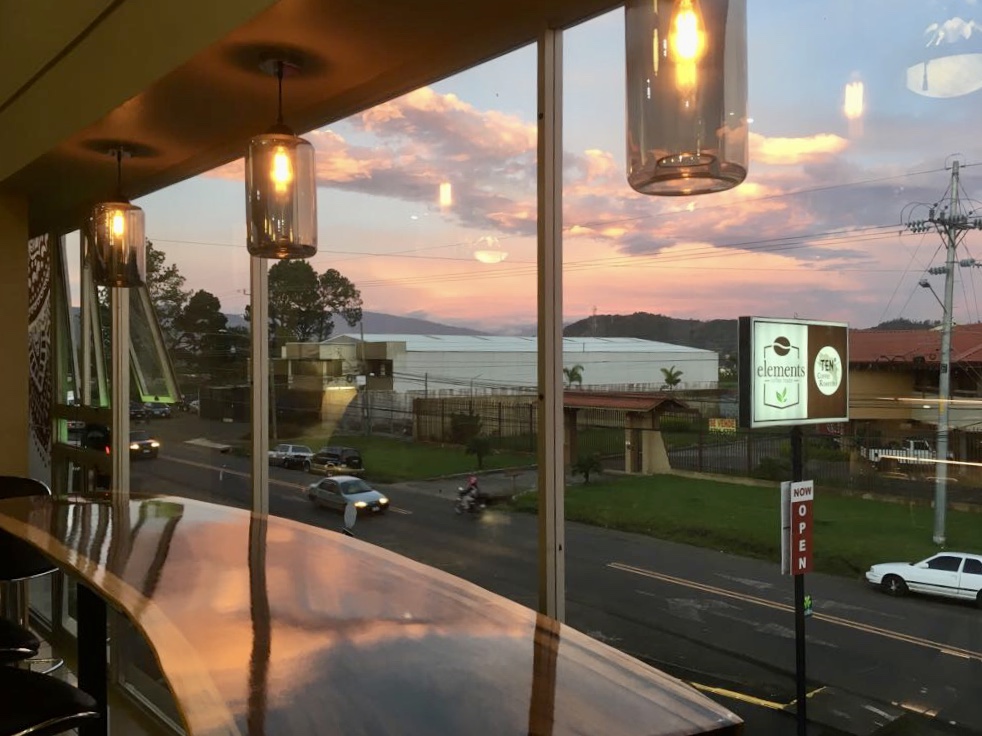
… includes beautiful second-floor views.
The coffee house and adjoining TEN Degrees Coffee Roasters have enjoyed acclaim for excellent customer service and sourcing local ingredients and products. Even so, Spokane Valley’s Kent and Dina Johnson and partner Malcolm Wicks will tell you there are far less time-consuming — and far more lucrative — ways to achieve ROI than Costa Rican cafes.
“We thought about closing it 5,000 times, 20 times a day,” Kent said.
For Kent, perhaps it was the fact he worked remotely for his full-time “real job” at Liberty Lake-based Itron while simultaneously building a coffee shop from scratch in a foreign country. (The Johnsons lived in Costa Rica from February 2012 to June 2019.)
For Malcolm, maybe it was the three-week window he chiseled to be away from his Spokane Valley coffee businesses to travel to Costa Rica, set up the shop and train employees — only to have all the equipment he needed stuck in customs until the day after he returned home. (Malcolm owns Grinders Coffee and its next door roaster, Bumper Crop Coffee, at 14505 E. Trent Ave.)
For Dina, it might have been the hundreds of hours waiting in line at third-world government offices to meet always-shifting requirements and obtain ever-elusive approvals. On one such occasion, a contextual misunderstanding of the Spanish word “timbre” had her thinking she needed to complete an application by providing the clerk with a doorbell. The woman was actually asking Dina for a 10-cent stamp, and eventually cleared up matters by providing it for her.
“I’m so thankful she had one, because I probably would have gone down to the hardware store and actually brought back a doorbell to give to her, because it seriously would not have surprised me,” Dina said.
Not that this marathon of hurdles has seen its finish line. In the week of our November interview, the Spokane Valley owners were troubleshooting a wonky ice machine from 3,200 miles away and finalizing details for a vacationing friend-of-a-friend to deliver a commercial grade kitchen mixer to Costa Rica as an extra suitcase.
Has it all been worth it? If life is to be measured on a spreadsheet, the jury is out. But like explaining that perfect cup of coffee, there are layers of this experience that run deeper: notes of deep fulfillment and accomplishment, fresh textures of the human experience, and — best of all — a richness in relationship.
So here are three of Kent, Dina and Malcolm’s favorite takeaways from their experience — in case, you know, you don’t get around to opening a coffee shop in Costa Rica yourself.
1. Embrace the ‘Pura Vida’ perspective
Ask an American teenager, and Pura Vida is a bracelet company. But in Costa Rica, it’s everything. Translated with expressions like “pure life,” “positive vibes” and “no worries,” it serves as an aloha-like greeting, but it’s also used as an attitude-checking response to the ups and downs of living.
“We used it a lot when we came up against those different obstacles, like, ‘Pura Vida, what are you going to do about it? This is life, and you have to just accept it and walk through it,’” Dina explained.
But it’s more than a Costa Rican spin on the “no worries” catchphrase — it’s regularly lived out in the culture.
When Malcolm was in Costa Rica for three weeks, unable to do any of the most pressing tasks on his itinerary, he was staying with the 25-year-old manager of Elements Coffee House, Jeanka, a longtime family friend of the Johnsons.
In Malcolm’s own words, Jeanka got to see the “chop-chop-chop” American culture coming out of him: “I was raving about something, not happy with how things were going, and he was like, ‘Look, man, there’s only one thing in life you can’t fix.’ And I said, ‘Yeah, what’s that?’ And he said, ‘Death.’ That was his response to me getting wound up. … It made me sit back and put things in perspective. Nobody’s dying, so yeah, I do need to chill out a little bit.”
Not that Jeanka lacks zeal for his work.
“He is passionate about things, but I’ve also heard him say a number of times, ‘Well, what can I do about that?’” Kent recalled. “And literally if there is nothing you can do about it, then why do you freak out about it and spend that much energy on it?”
“Pura Vida”: Perhaps another translation is “lower blood pressure.”
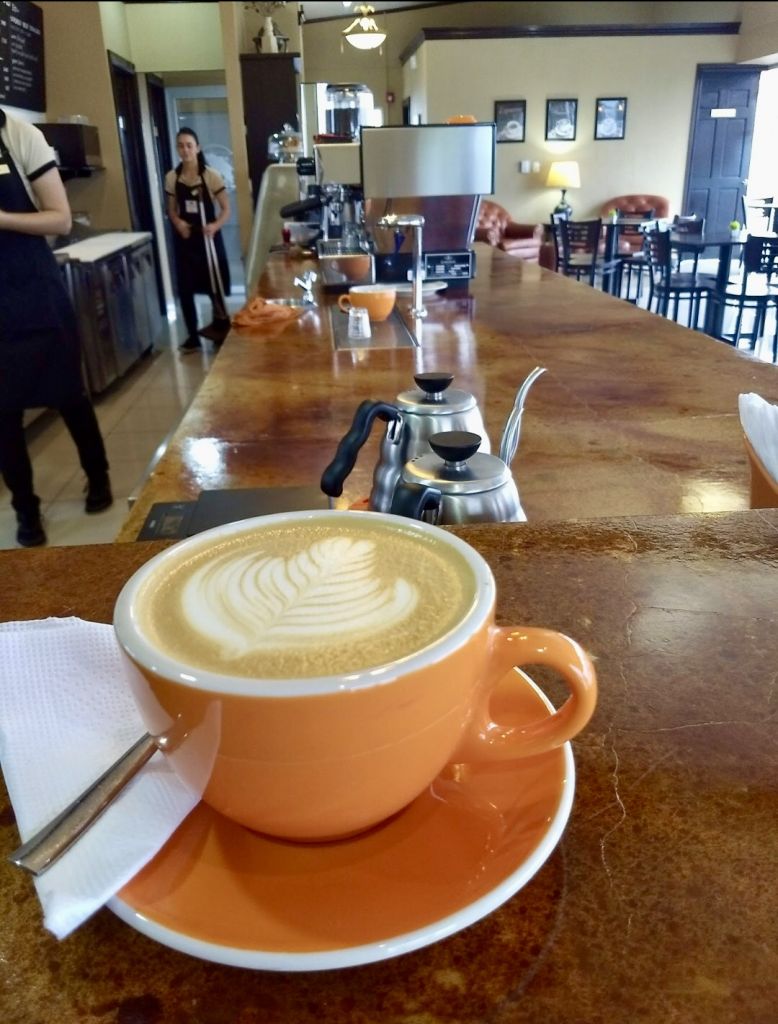
2. Ask yourself if you need it
About 90 percent of Costa Rican coffee is exported. The 10 percent that remains for local consumption is affectionately referred to by Ticos as “the garbage,” Kent explained. Not to be fooled, the coffee that doesn’t pass muster for export is still very good, and it’s widely consumed as part of a true “coffee culture.”
“The toddlers drink coffee; (people) drink it all day and all night,” Kent said.
They enjoy this “garbage” with milk and sugar, if available, or drink it black. Skimping on unnecessary ingredients is part of a cultural value of getting by simply.
When Malcolm moved in with Jeanka for his first three-week stint in country, the young man lacked a refrigerator. Malcolm wondered how he would store the groceries during his stay, so he bought Jeanka a fridge. Two or three days later, Malcolm approached Jeanka about the rag they used to wipe down the glass door on the apartment shower.
“I said, ‘Jeanka, we need to go get you a squeegee and wipe this down with a squeegee,’” Malcolm said. “What’s a squeegee — three bucks? … And he was like, ‘Look man, if you don’t have it, you don’t need it.’ That was his response. And it’s just the way they live.”
Look man, if you don’t have it, you don’t need it.
Jeanka, Manager of Elements Coffee House
The response made a deep impression, causing Malcolm to wish this minimalist perspective would not only rub off on him, but on the America he would soon be re-entering.
For Malcolm, the lesson was more than a conviction about personal consumption. He also noticed this perspective caused people to treat one another with greater humanity. While there isn’t a middle class to speak of in Costa Rica, the rich and poor seem to coexist without stigma, not measuring their human success in terms of wealth.
“There’s a different way than what we typically see done, and it’s OK,” Malcolm said. “It’s like, ‘If you need it and I have it, then it’s yours.’”
3. Place proper priority on relationships
In Costa Rican coffee culture, you don’t grab and go; you sit and talk, Dina explained.
“Every day, they drink at 9 o’clock and 3 o’clock; it’s coffee hour for them,” she said. “It’s relational. This is what they do. They invite you over for coffee.”
The busiest day of the year for Elements Coffee House? Mother’s Day. Indeed, the culture seems intent on making a statement that people are not part of a checklist, but simply the priority that will always trump the checklist. In this way, the coffee and relational aspects of Costa Rican culture are linked.
Living with Costa Rican neighbors for seven years, the Johnsons’ decision to move back to Spokane Valley in June caused no shortage of mourning for the relationships that had been formed. Perhaps the hardest goodbye was to their longtime neighbors, Jeanka’s family.
“The dad was just sitting by the curb and crying,” Kent recalled. “He just said thanks for all you have done for Jeanka.”
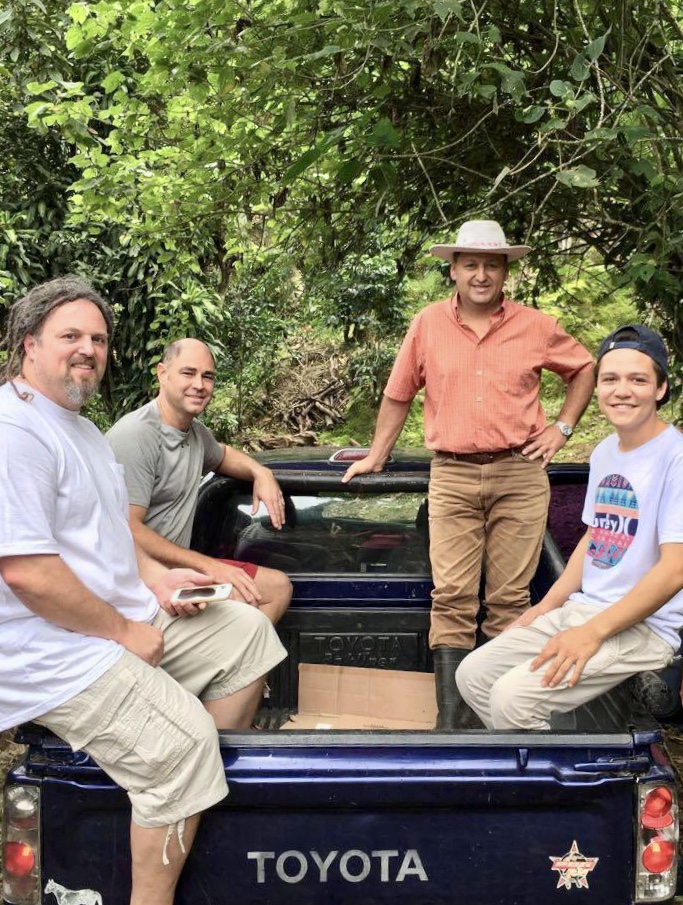
While Malcolm was never a longtime resident of the country, Jeanka’s family left a similar impression on him. On his first day in Costa Rica, Jeanka asked him what he wanted to be sure to do or see on his visit. His only request: An authentic meal. Jeanka said he would have his mom cook him something, and then Malcolm thought he must have forgotten about it, because he didn’t hear another thing about it the entire three weeks.
While eating dinner on his final night before returning to the States, Jeanka suddenly showed up and interrupted the meal.
“We got to go to my mom’s right now,” he announced. “My brother is coming to pick us up.”
Malcolm asked if they could just say goodbye to her in the morning before heading to the airport.
“No, you don’t understand,” Jeanka shook his head. “She cooked; we got to go.”
An hour later, Malcolm walked into the humble Costa Rican home.
“It dawned on me at that point what had transpired over the course of the last three weeks. It literally took her three weeks to source the ingredients she wanted to prepare this one meal for me,” Malcolm said, explaining how she had likely had to save money to purchase some of the ingredients and bartered for others. “In that moment, it was the best food I’d ever eaten, and I sat there and bawled for probably 15 minutes in front of this lady I’d met once. But she understood it; Jeanka understood. And the bond with that family for my family will never be broken.”
In the Beginning
The makings of an unlikely Costa Rican coffee partnership
Malcolm Wicks spent the better part of four hours scaring his friends away from the coffee business.
The owner of Grinders Coffee and its next-door roaster, Bumper Crop Coffee, at 14505 E. Trent Ave., Malcolm knows firsthand how complicated and financially uncertain the industry is in Spokane Valley, let alone Costa Rica.
Kent Johnson showed up for that February 2017 conversation in the Bumper Crop loft with “four or five questions” connected to his dream of opening a coffee shop in San Ramon, Costa Rica, with his wife, Dina.
“I left with the biggest pit in my stomach I’ve ever had in my life,” he recalled.
Dina could see the reality check written all over his face.
“He came home to me, and he said, ‘We don’t know what we’re doing. There’s no way we can do this. We do not know enough,’” Dina remembered. “And he said, ‘I think we just need to hold off on this.’”
Kent’s recollection was even more blunt: “I was done.”
He prayed about it that evening, effectively handing the dream off to the Lord with the acknowledgement that resuscitation would require a miracle.
At approximately 9:30 the next morning, he received a text message. The dream was back on.
* * *
Malcolm and Kent first connected on Newman Lake in the 1990s over a shared love of wakeboarding. As their families grew, so did their friendship. Highlights include the year Malcolm’s wife, Dani, had the Johnsons’ daughter in her fourth grade class. The families spent years barbecuing and snowboarding together before Kent and Dina vacationed to Costa Rica in June 2011 — and fell in love with the country. By the following February, Kent had gained permission to work his Itron HR job remotely, and the Johnson family became full-time residents in the hills northwest of San Jose.
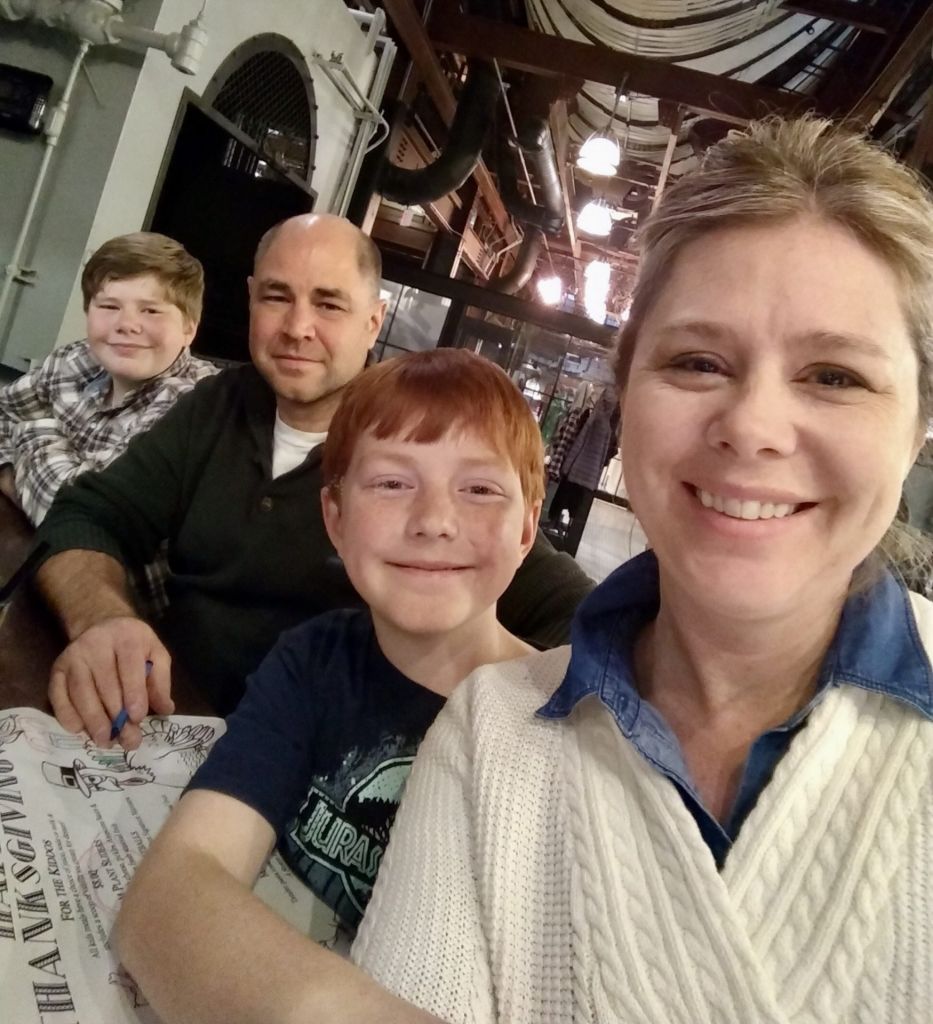
Since their first trip in 2011, Kent and Dina Johnson’s Costa Rica experience has been a family affair, shared with two adult children (27 and 24), and their two youngest sons, ages 14 and 10.
The fateful meeting with Malcolm came five years into their Costa Rican adventure, with the Johnsons well along in the process of investing in a local business. They had looked into vacation homes and private car rentals, but nothing appealed to them quite like the idea of starting a coffee shop. On a vacation to visit family and friends back in Spokane Valley, Kent looked to his friend Malcolm to help sharpen the idea.
“I left the meeting going, ‘Those guys are going to fail. They can’t do this,’” Malcolm said. “My whole mission was to talk them out of doing it.”
But then a strange thing happened. He found himself thinking about how some of the best coffee in the world is farmed 30 minutes up the hill from the Johnsons’ proposed venture, how he owned a backup roaster that was just taking up space in the Bumper Crop shop, how many of the pitfalls awaiting his business-savvy friends were tied to their lack of coffee experience — experience he had in spades.
“The next morning I woke up, and I said, ‘Dani, I think we should try to partner with these guys and do this down there,’” Malcolm said. “I was thinking she would be like, ‘What? Why would we do that? We don’t want to get involved in that.’ But she was just like, no hesitation, black and white, ‘Yeah, I think you should do that. That’s a great idea.’ So I took that as like, ‘OK, I should at least propose this.’”
And he sent a text.
Coffee Notes
When we met in November in the loft of Malcolm Wicks’ Bumper Crop Coffee on Trent, he had just finished roasting a batch of beans from China. My first experience with the rare Chinese coffee industry, these beans showed hints of blueberry and left me wanting to waltz into Malcolm’s roastery more often.
Kent and Dina Johnson’s favorite coffee in the world is, of course, their own TEN Degrees variety. The beans are purchased 30 minutes up the hill from a collection of small farms that specialize in growing high-altitude Arabica coffee in Costa Rica’s famous West Valley growing region. The Johnsons roast the beans at TEN Degrees, which has its own space next to Elements Coffee House in San Ramon.
For coffee that doesn’t require travel to Central America, the Johnsons recommend picking up one of their two favorite Bumper Crop single origin roasts: Santa Rosa (from Honduras) and Sidamo (a popular coffee-growing region in Ethiopia). Find them at bumpercropcoffee.com.
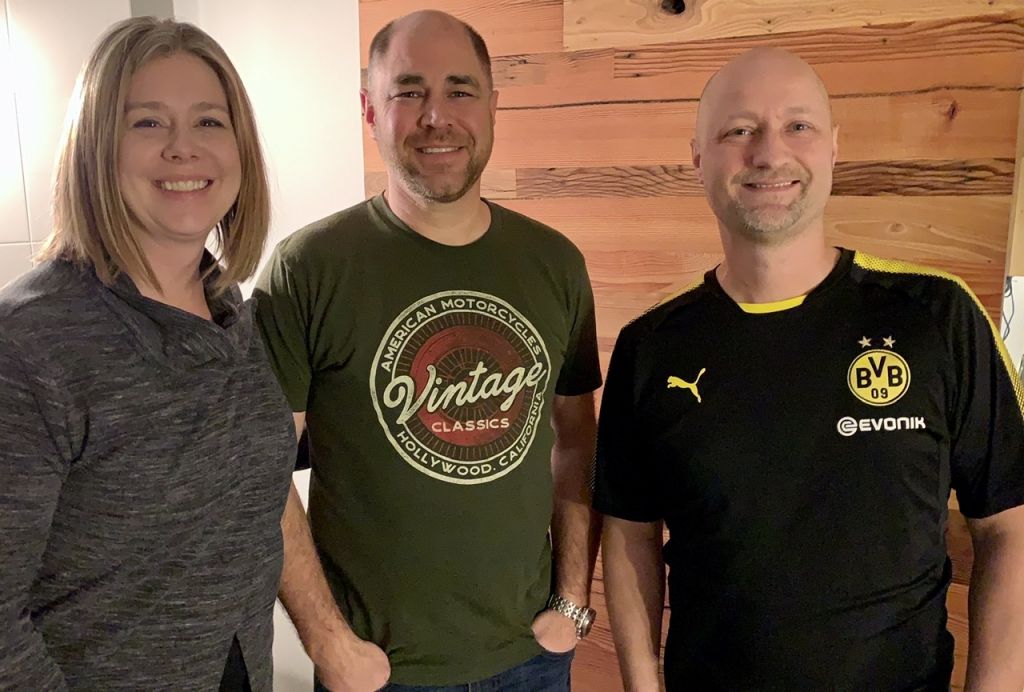
Huge thanks to Dina and Kent Johnson for sharing their Costa Rican adventures with me, as well as Malcolm Wicks (not pictured) — Josh Johnson (soccer jersey: Borussia Dortmund)
While you’re here, would you do me a favor?
If you enjoy articles like this one, join the CoffeeJosh mailing list. It’s hurry-free, spam-free and also free … free. As a thanks, I’ll send you a PDF — you guessed it, free — that has 10 of the best coffee shop orders in the Spokane area. (All 10 are drinks and treats local coffee shop owners make for themselves. In this case, expect to pay for your order and feel like it was totally worth it.)






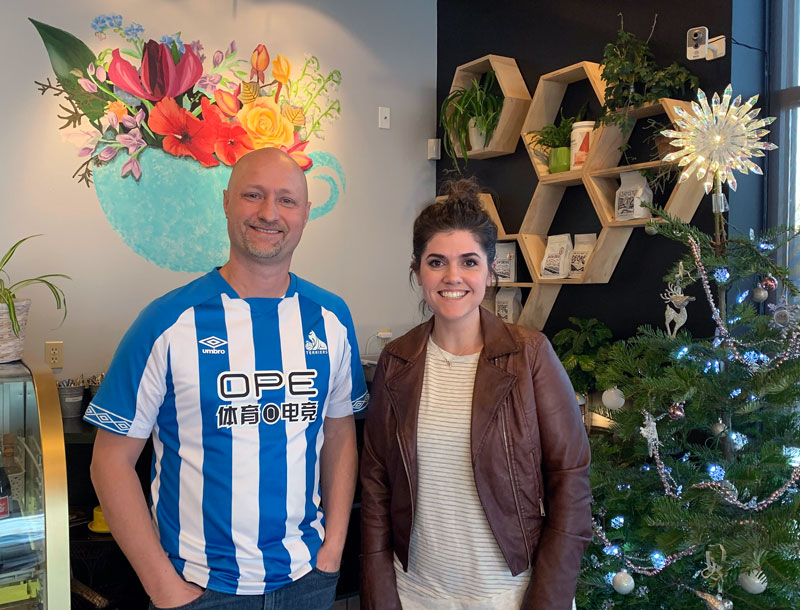
2 Comments
Thanks for publishing this. I glad my parents go to meet you and share their experience.
Your parents were so fun to talk to, Landon! It was an honor to visit with them and Malcolm and share about this purposeful adventure.